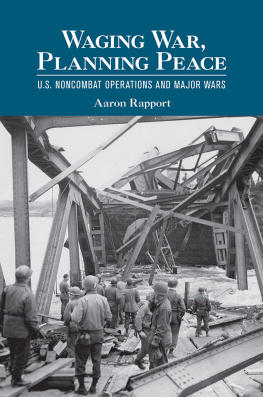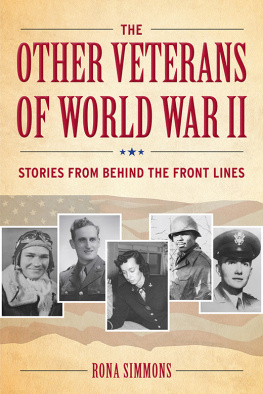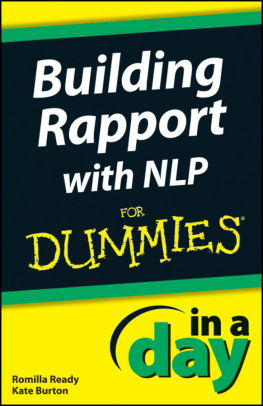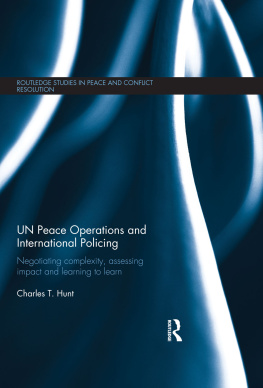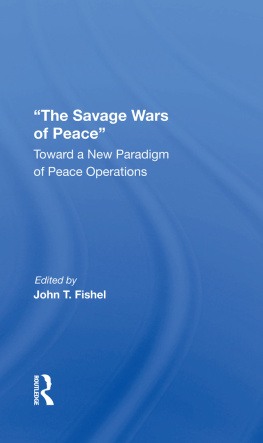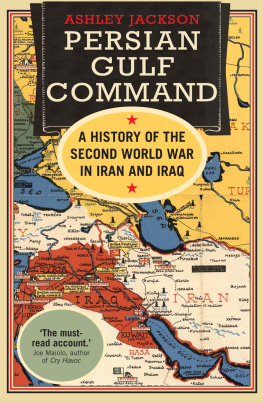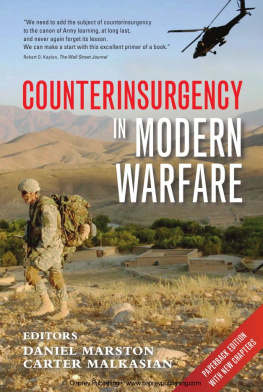Acknowledgments
Seeing this book through to publication has been the most rewarding part of my career to date. As with any research project that has consumed the better part of a decade, the author of this one owes a debt of gratitude to numerous individuals and organizations. It is fitting that for a study of security and psychology so many people were willing to intervene on behalf of my physical and mental well-being when I reached critical junctures.
Several organizations helped to make my research possible. At the University of Minnesota, Ron Krebs, Martin Sampson, John Sullivan, and Gene Borgida oversaw the earliest phases of my work. Ron and Martin were particularly encouraging in the very beginning when I was not yet sure whether the project had any legs to stand on. Ron has been enmeshed in each turn my argument has taken, and has a knack for pointing out faulty logic and evidence in my writing with scalpel-like precision. Without him Im not sure how I could have refined and improved the weaker elements of my work without killing the patient, so to speak, which is something all researchers are tempted to do at certain points. I am less intellectually intimidated now than when I started this book, so either Im getting smarter or Ron is using shorter words. I like to think it is the former.
My research also took shape at Minnesota in informal working groups. Logan Dancey, Chris Galdieri, Dana Griffin, Henriet Hendriks, Serena Laws, Jenny Lobasz, Kjersten Nelson, Jon Peterson, Eve Ringsmuth, and Lauren Wilcox all helped me with their perspectives and advice, even (especially?) those whose research interests were quite different from my own.
The Miller Center at the University of Virginia, and Brian Balogh, director of the centers fellowship program, made my time as a fellow a highly enjoyable and productive one even while I was working from afar. If it had not been for the Miller Center I would not have had the great privilege of working with Jack Levy, who agreed to mentor me even though he had never met me nor likely even heard my name before. Jacks knowledge of politics, psychology, and history has helped me immensely in my work, often proving invaluable. I was simultaneously ensconced at the Belfer Center for Science and International Affairs at Harvard University, where Steven Miller and Stephen Walt head the International Security Program. My officemate there, Ilai Saltzman, provided me with helpful feedback on my work and even free donuts from time to time. Other Belfer colleagues whose insights were especially important for my study of the Iraq War include Philip Bleek, Jennifer Dixon, Brendan Green, Jacqueline Hazelton, Jennifer Keister, Negeen Pegahi, and Melissa Willard-Foster.
I am grateful to have had a terrific group of colleagues in the Political Science Department at Georgia State University as the book was taking shape. Materially, Georgia State supported me with a research grant that enabled me to spend weeks visiting three presidential libraries. My use of archival materials was facilitated by the able staff at the Franklin D. Roosevelt Library in Hyde Park, New York; the Harry S. Truman Library in Independence, Missouri; and the LBJ Library in Austin, Texas. My proximity to the University of Georgia also allowed me to be one of the first visitors to the new Richard B. Russell Library, whose staff helped me navigate Dean Rusks personal papers. Sayan Banerjee, Jason Levitt, Gulcan Saglam, and Alexandra Wishart also provided research assistance during my time at Georgia State. My new colleagues at the University of Cambridge helped me get accommodated to a new department, not to mention new country, as I was making the final revisions to the manuscript.
James McAllister deserves special credit for reading the entire manuscript and providing excellent comments, particularly on the studies of Germany and Vietnam. Jonathan Mercer, whose work at the intersection of psychology and international relations continues to influence my thinking, read and provided valuable comments on some early drafts. Dominic Tierney, whose own research on U.S. military operations and psychology gave me plenty to think about while writing the book, also provided me with helpful advice on some of my case studies. I was also fortunate to meet Larry Berman while working in Atlanta; his expertise on the Vietnam War and familiarity with its historiography substantially improved my understanding of the Johnson administrations actions in 1964 1965.
I entered the academy entirely unfamiliar with the process by which a book manuscript gets published. Roger Haydon at Cornell University Press was very helpful at guiding me every step of the way, answering every question I had as punctually as could be desired. I am grateful to have had him as an editor, especially on my first book.
My family members support throughout has known no bounds. Adam, my younger brother, would give me encouraging words over the phone, first from college in Philadelphia, and later as a working man in New York. My parents, Phil and Becky, have seen me through all my low and high points over the years, and should know that all the low points came despite what they did, and all the highs due in no small part to their efforts. I love the three of you a whole bunch.
Finally, I am inestimably lucky to have my wife Joyce. She is my best friend and love of my life. In the five years we have been married my work has taken us to live in three different cities in two different countries, twice driving hundreds of miles with an angry hyperventilating cat in the backseat. I have no idea how I would have done it all without her, and marvel at her ability to make good things seem great and bad things seem manageable. For all this and more, I dedicate this book to her.

